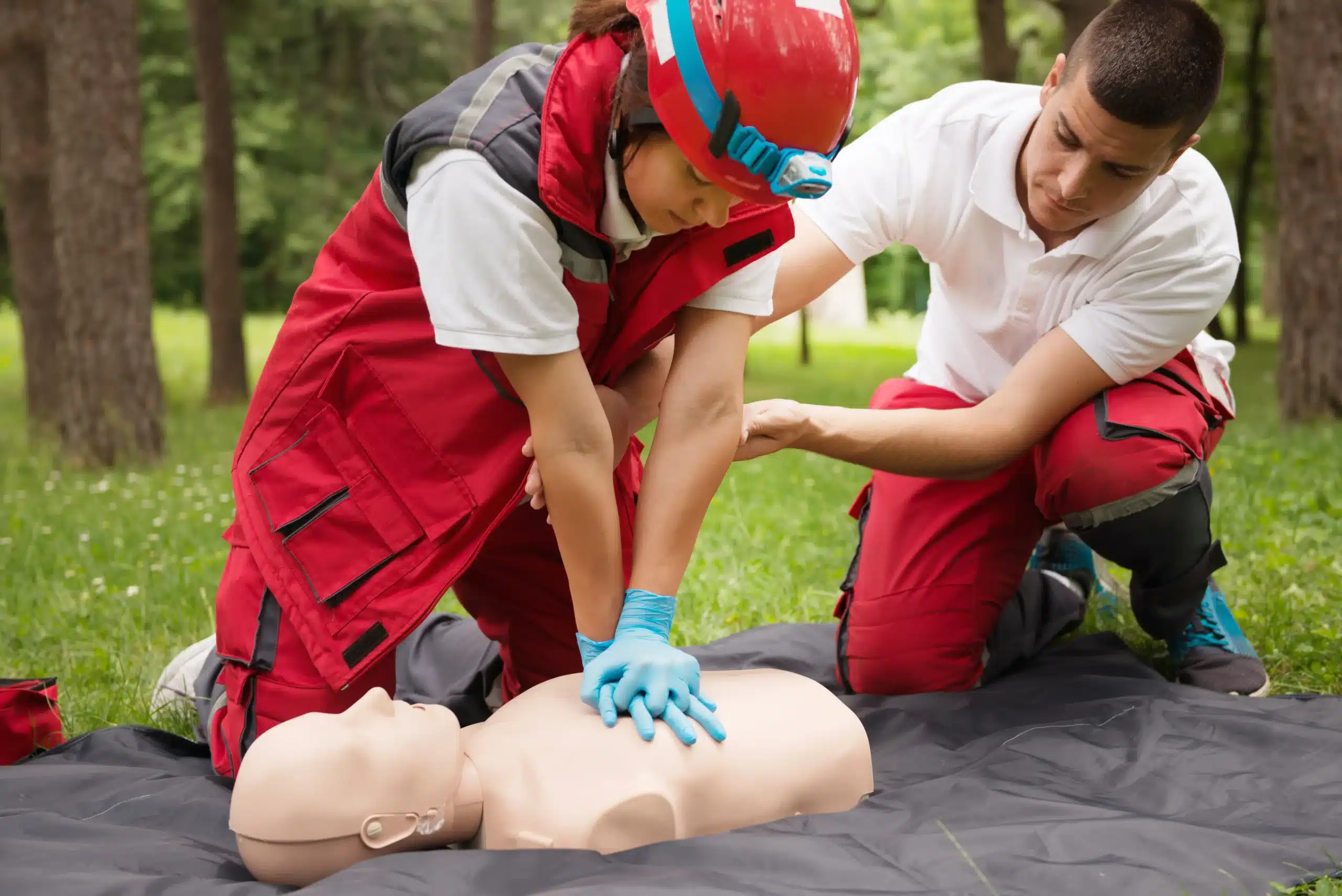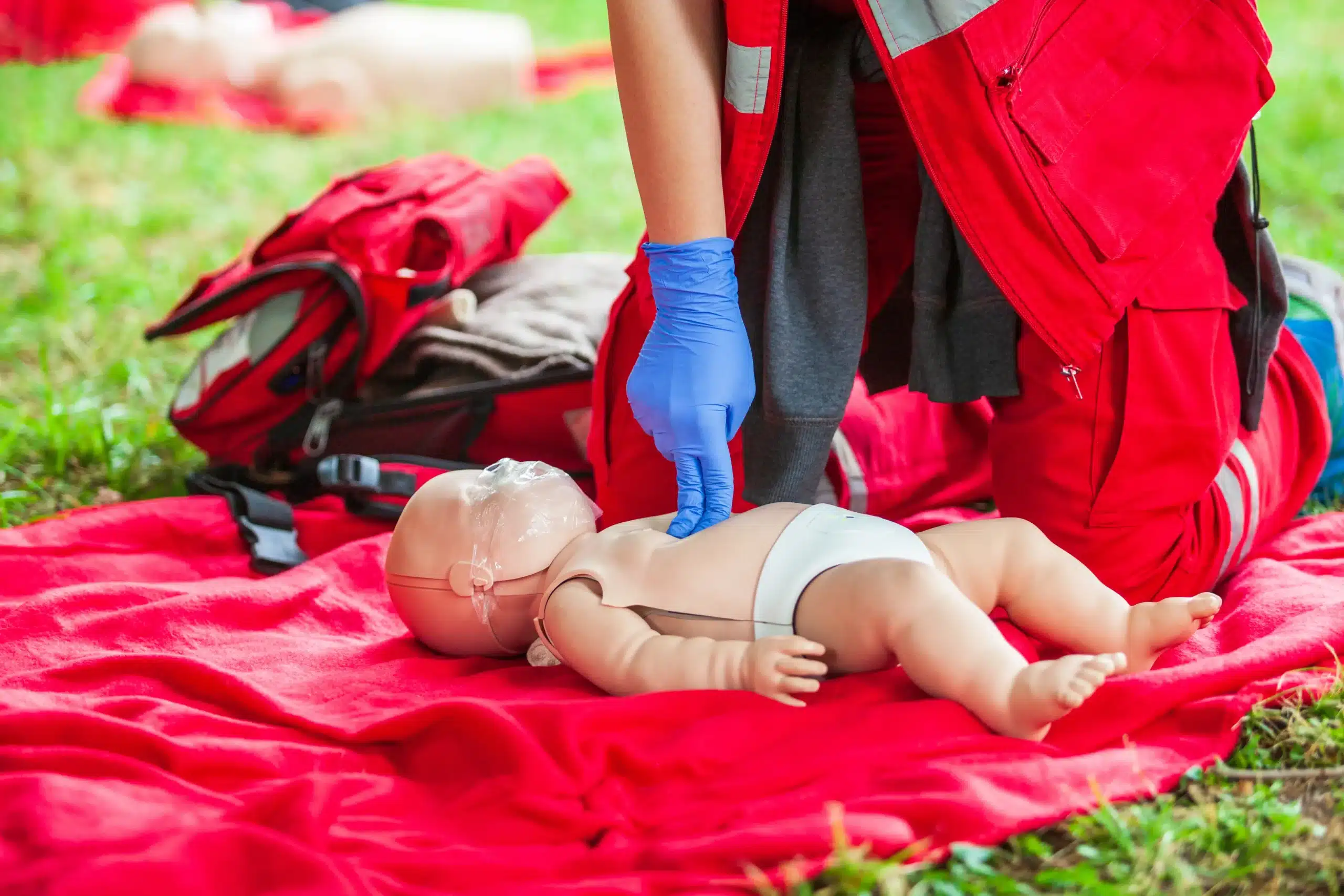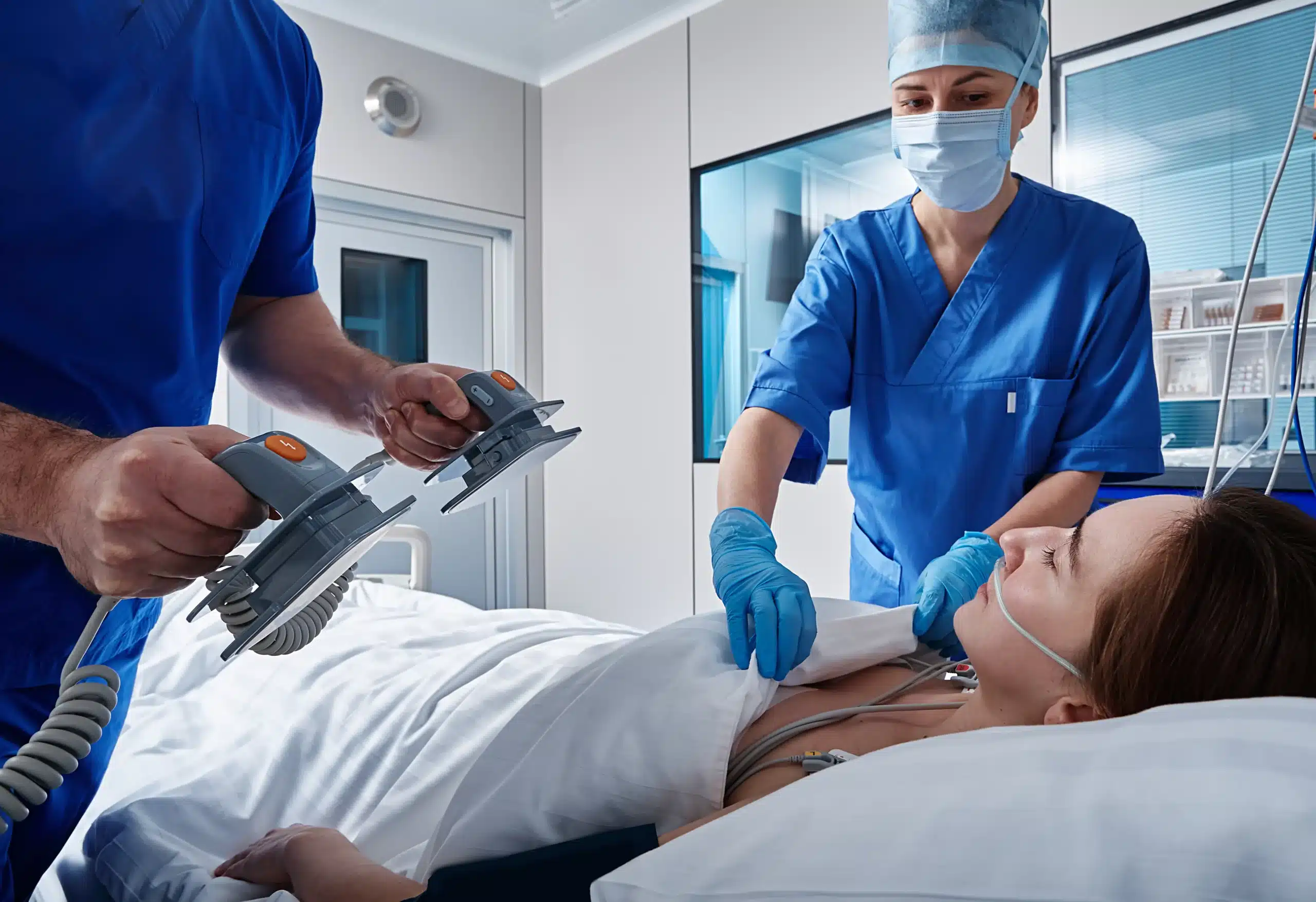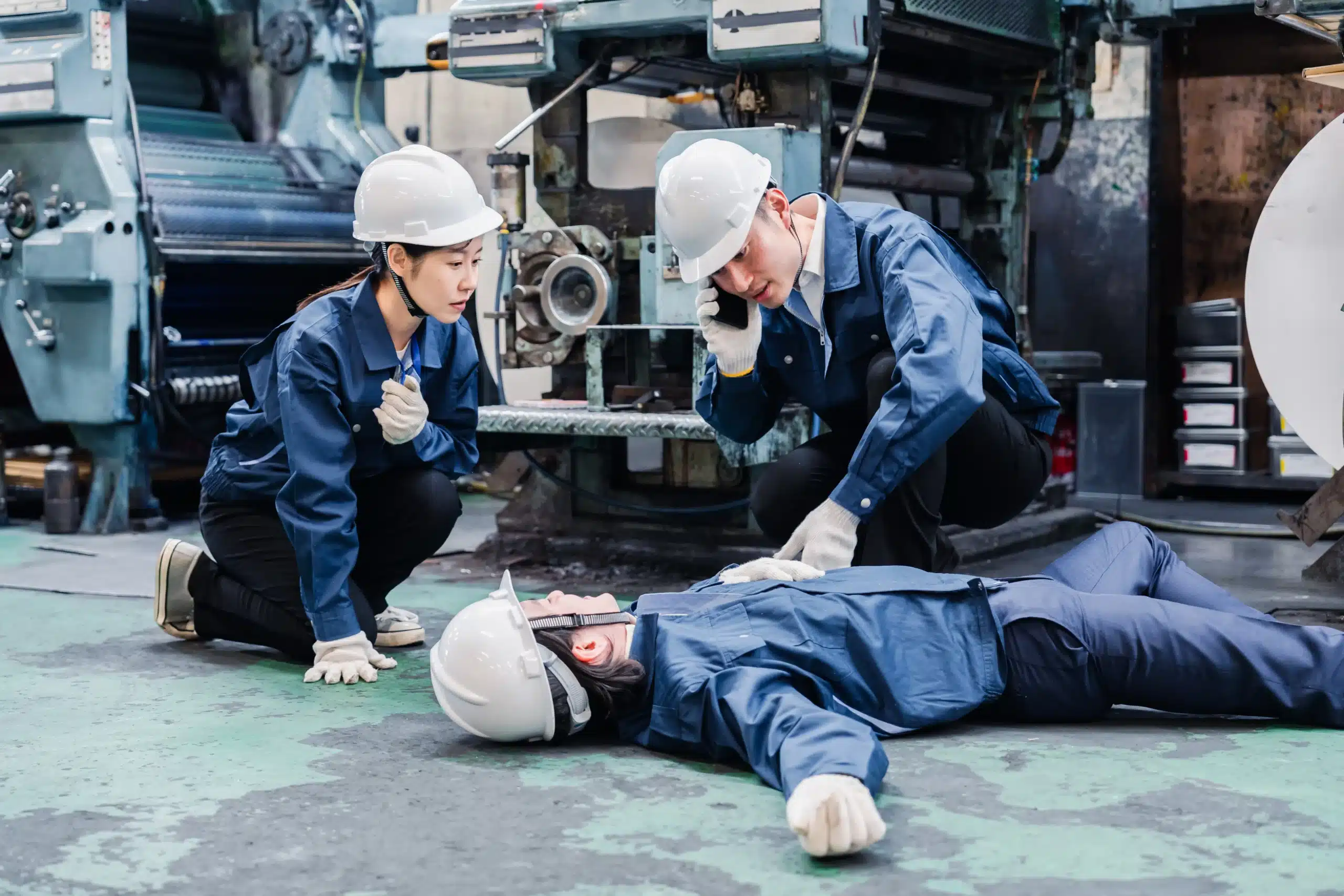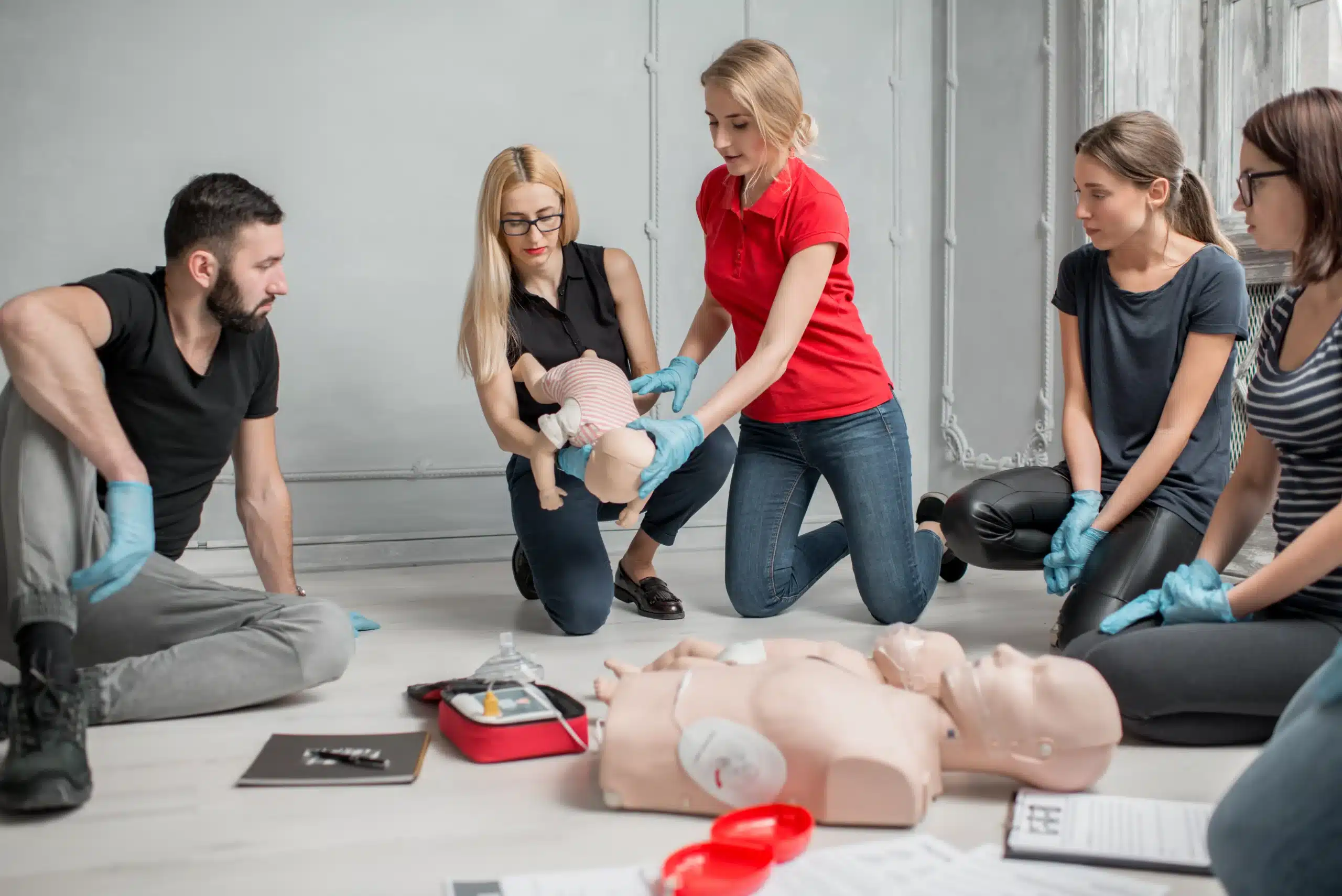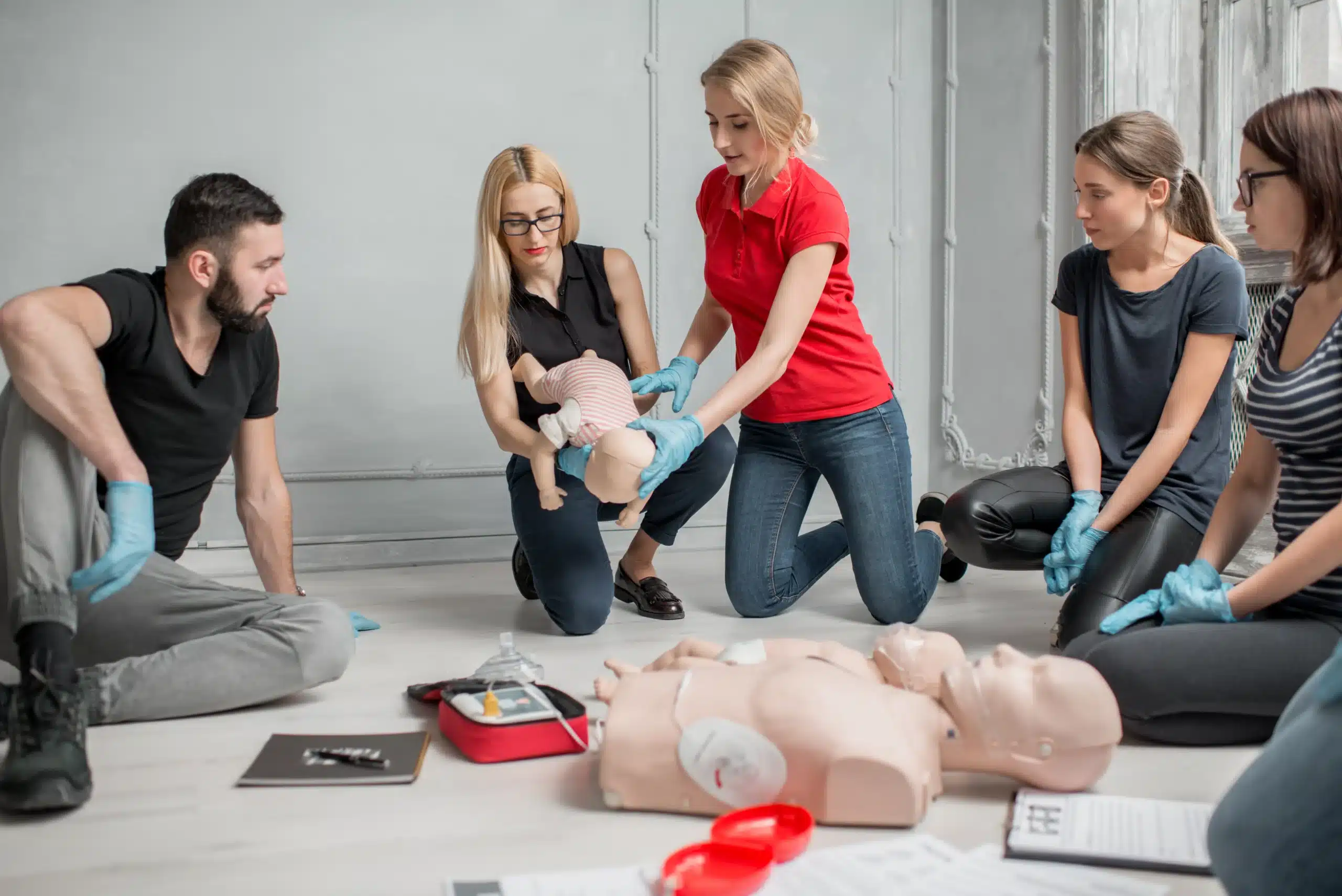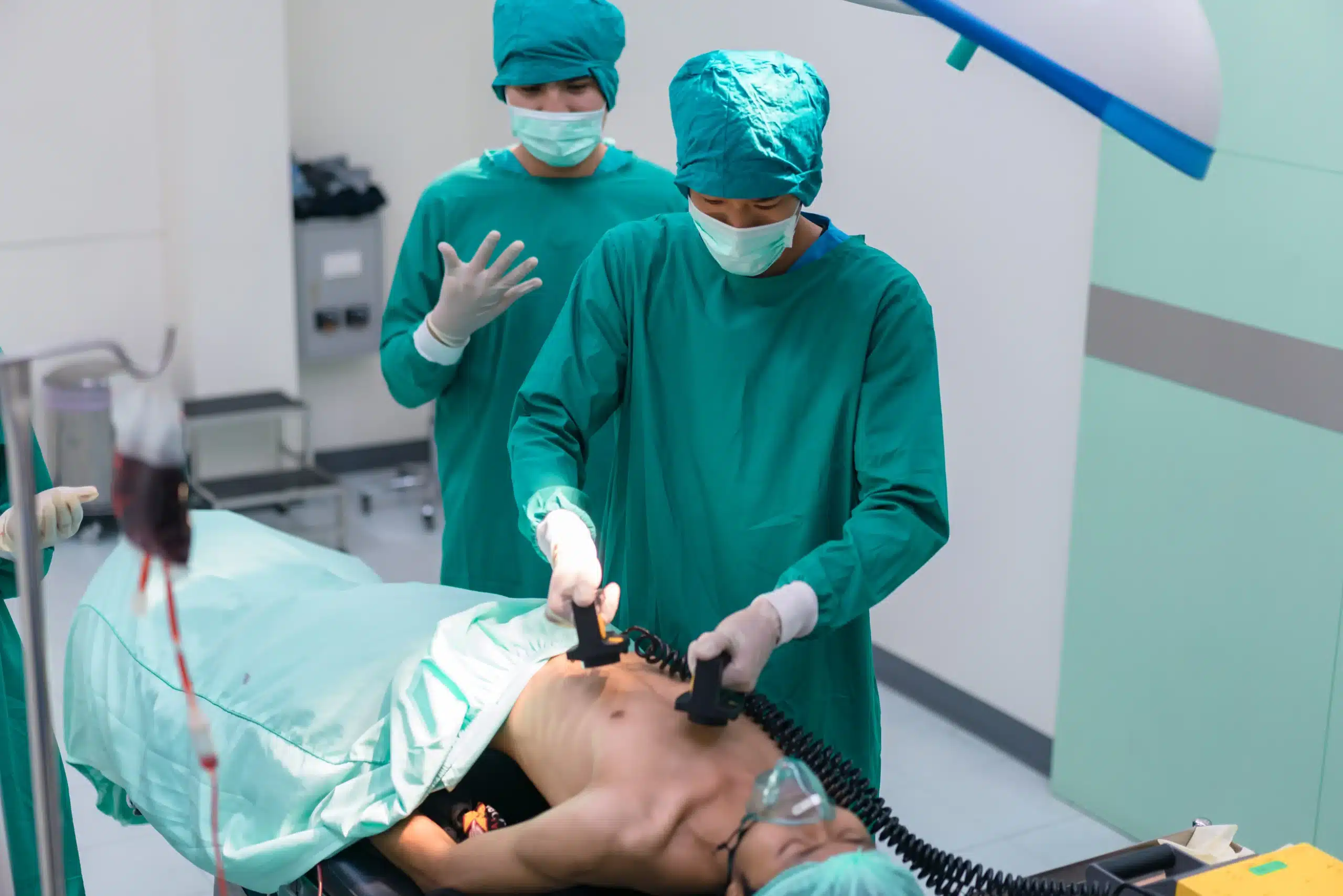Are you a healthcare provider in San Jose looking to enhance your skills and improve patient outcomes? Advanced Cardiac Life Support (ACLS) is a must-have certification for anyone working in critical care or emergency medicine. This comprehensive guide will walk you through everything you need to know about ACLS, from its core components to finding the right training program in San Jose. We’ll explore the certification process, discuss essential skills, and provide valuable resources to help you succeed. Whether you’re a first-time participant or seeking recertification, this post will equip you with the knowledge and confidence to provide exceptional advanced cardiac life support in San Jose.
Key Takeaways
- ACLS equips you with advanced life-saving skills: It builds upon basic life support, empowering you to manage complex cardiac emergencies effectively and improve patient outcomes. Prioritize programs with hands-on training and simulations.
- Choosing the right ACLS program is key: Consider factors like cost, schedule, instructor experience, and the blend of online and in-person components. Reputable providers like Milpitas CPR Classes and the AHA offer various options.
- Preparation and teamwork are essential for ACLS mastery: Review the latest guidelines, practice with simulations, and develop strong communication skills. Effective stress management techniques are also crucial for clear thinking in emergencies.
What is Advanced Cardiac Life Support (ACLS)?
Advanced Cardiac Life Support (ACLS) is a set of advanced, evidence-based protocols designed to maximize the chances of survival during life-threatening cardiac events. It goes beyond basic life support (BLS), equipping healthcare professionals with the skills to manage respiratory and cardiovascular emergencies in patients of all ages. This specialized training is crucial for anyone working in emergency medicine, critical care, or other healthcare settings where they might encounter these situations.
Definition and Importance
ACLS is a vital part of the chain of survival for cardiac arrest and other serious medical emergencies. It emphasizes early recognition and intervention, high-quality CPR, and effective team dynamics. The goal is to stabilize the patient and restore normal heart rhythm and circulation as quickly as possible. Having healthcare providers trained in ACLS significantly improves patient outcomes and can mean the difference between life and death. The American Heart Association provides comprehensive guidelines and training materials for ACLS. These guidelines are regularly updated to reflect the latest scientific evidence and best practices in emergency cardiac care.
Key ACLS Training Components
ACLS courses cover a wide range of topics, including advanced airway management techniques, such as intubation and ventilation. Participants learn how to establish intravenous access for medication delivery and fluid resuscitation. The program also focuses on recognizing and treating various cardiac arrhythmias using electrocardiogram (ECG) interpretation. Effective ACLS training emphasizes the importance of teamwork, communication, and leadership during critical situations. Simulations and hands-on practice are key components of ACLS courses, allowing participants to develop and refine their skills in a safe and controlled environment.
Critical Skills for Healthcare Professionals
While BLS provides foundational life-saving skills for anyone, ACLS builds upon this knowledge. It provides healthcare professionals with the advanced skills needed to manage complex cardiac emergencies. These professionals, including doctors, nurses, paramedics, and respiratory therapists, are often the first line of defense in these situations. Their ability to quickly assess, diagnose, and treat patients experiencing cardiac arrest or other serious cardiovascular issues is paramount. Understanding the differences between various certifications like, ACLS, BLS, PALS, and CPR is essential for healthcare providers. This knowledge ensures they can provide the appropriate level of care based on the patient’s specific needs.
Impact on Patient Outcomes
Studies have shown a strong correlation between the presence of ACLS-trained healthcare providers and improved patient survival rates. Research indicates that patients cared for by ACLS-trained nurses have a significantly higher likelihood of survival. This is especially true when compared to those cared for by nurses without this specialized training. This underscores the importance of investing in ACLS training for healthcare professionals to enhance patient care and outcomes during cardiac emergencies. The ability to rapidly and effectively respond to these critical situations can significantly impact a patient’s chances of recovery.
Top ACLS Certification Providers in San Jose
Finding the right Advanced Cardiac Life Support (ACLS) certification course is crucial for healthcare professionals. San Jose offers several excellent options, making it easier to find the right fit. This section highlights some of the leading providers in the area to help you get started.
Milpitas CPR Classes
Milpitas CPR Classes offers a range of ACLS courses designed for healthcare providers. Their programs focus on practical skills and building confidence in managing advanced cardiac emergencies. Learn more about their ACLS training on their website.
AHA-Accredited Training Centers
The American Heart Association (AHA) provides ACLS courses in San Jose through its network of accredited training centers. These courses cater to various experience levels, from beginners to experienced professionals seeking recertification. The AHA’s emphasis on high-quality emergency cardiovascular care makes these courses a valuable choice.
Safety Training Seminars
Safety Training Seminars offers a variety of AHA certification courses, including BLS, ACLS, PALS, and First Aid, in nearby Milpitas. Their flexible schedule, with classes running seven days a week, makes it convenient for busy professionals to find a time that works.
Other Reputable Providers
You’ll find several other respected organizations offering ACLS (and often BLS) training in and around San Jose. For example, the CPR Training Center is known for its comprehensive curriculum and experienced instructors. Researching different providers in your area will help you choose the best fit for your learning style and schedule. You can find more information on local providers on the Milpitas CPR Classes blog.
ACLS Certification: Process and Requirements
Course Structure and Duration
The initial ACLS course typically takes about 12 hours and is held in person. This format allows for hands-on training and interaction with instructors. It’s designed for healthcare providers new to ACLS or those due for recertification. Refresher courses are also available for providers who need a quicker review.
Prerequisites and Materials
Before your in-person ACLS class, you’ll need to complete online pre-course work through the American Heart Association. This involves video lessons and a self-assessment. Bring your certificate of completion to the first day of class. You’ll also need an ACLS Provider Manual (eBook or paperback). If you don’t have one, you can often purchase an eBook from the training center.
Certification and Renewal
You’ll receive your AHA ACLS certification the same day you complete the course. This certification is valid for two years. Remember to mark your calendar for recertification to maintain your skills and provide optimal care.
Online vs. In-Person Training
If a traditional classroom doesn’t work for you, consider blended learning. These programs combine online HeartCode ACLS with an in-person skills session. This flexible approach lets you learn online at your own pace and then demonstrate your skills in person.
Master ACLS Skills & Overcome Challenges
Mastering Advanced Cardiac Life Support (ACLS) goes beyond simply learning algorithms; it’s about developing a comprehensive skill set to handle complex medical emergencies. This involves understanding essential study resources, fostering effective team dynamics, managing stress, and avoiding common pitfalls. This multifaceted approach will better equip you to provide effective patient care in critical situations.
Essential Study Resources
Preparation is key to success in ACLS. Familiarize yourself with the most current ACLS guidelines and algorithms before the course. Many students find mobile apps helpful for quickly reviewing algorithms during real-world emergencies. Supplement your learning with practice tests and simulations to reinforce your knowledge and build confidence. This preparation will allow you to apply your knowledge effectively during the course and in real-life scenarios.
Effective Team Dynamics
ACLS scenarios often involve a team of healthcare providers working together. Strong communication and collaboration are crucial for effective patient care. Understanding team dynamics and practicing clear communication strategies will improve your ability to coordinate care and make quick decisions under pressure. Practical team simulations can help teams develop these essential skills and build a cohesive, high-performing unit.
Managing Stress in Emergencies
High-stress situations are inherent in ACLS. Learning to manage stress effectively is vital for clear thinking and decisive action. Explore techniques like mindfulness and deep breathing to help you stay calm and focused during critical moments. Recognizing the psychological challenges faced by healthcare workers in these situations can also improve communication and overall well-being. Developing these coping mechanisms will allow you to perform at your best under pressure.
Common Mistakes to Avoid
One common mistake is inadequate preparation. Make sure you review the ACLS protocols thoroughly before your training. Another pitfall is neglecting the basics of Basic Life Support (BLS). A solid foundation in BLS principles is essential for effective ACLS. Finally, remember the importance of debriefing after a scenario. Reflecting on your performance, both individually and as a team, helps identify areas for improvement and reinforces best practices. By avoiding these common mistakes, you can maximize your learning and improve patient outcomes.
Invest in Your ACLS Certification
Getting your ACLS certification is a smart move for any healthcare professional, and thankfully, there are options in San Jose to fit your budget. Let’s break down the costs and explore why this credential is a worthwhile investment in your career.
Average ACLS Course Costs in San Jose
In San Jose, the average cost for an initial ACLS course hovers around $250. This covers the comprehensive training and materials you’ll need to master the skills required for advanced cardiac life support. For example, CPR Training Center offers an ACLS Initial Class at this price point and boasts excellent reviews.
Group Rates and Discounts
If you’re planning to take the course with colleagues, look for group discounts that make training even more affordable. CPR Training Center offers a 10% discount for groups of six or more. Smaller groups of two to five people can also save with a 20% discount using the code ACLS20 when registering. Learning with coworkers is a great way to build camaraderie and reduce individual expenses.
Long-Term Career Value
While there’s an upfront cost for ACLS certification, consider it an investment in your future. This credential demonstrates your commitment to providing high-quality patient care and can significantly enhance your career prospects. ACLS training is a key requirement for many advanced healthcare roles, especially those involving emergency cardiovascular care. ACLS plays a vital role in improving patient outcomes, further highlighting the value of this certification for both healthcare providers and the people they serve. Earning your ACLS certification can open doors to new opportunities and help you advance in your field.
Choose the Right ACLS Program in San Jose
Finding the right Advanced Cardiac Life Support (ACLS) course can feel overwhelming, but focusing on a few key factors simplifies the process. This section helps you identify the perfect program in San Jose, whether you’re a first-time participant or renewing your certification.
Factors to Consider
Start by exploring reputable providers like Milpitas CPR Classes and its parent company, Safety Training Seminars, a woman-owned American Heart Association (AHA) Training Center. Consider factors such as cost, schedule flexibility, and instructor experience when making your decision. Think about what’s most important to you—hands-on training, convenient online options, or personalized instruction? Reading reviews from past participants can offer valuable insights. For those located in Milpitas, San Jose, or Santa Clara, accessibility and proximity to your home or workplace are also important considerations.
Scheduling and Convenience
Balancing your existing commitments with ACLS training requires a program that fits your schedule. Safety Training Seminars offers various AHA certification courses—including BLS, ACLS, PALS, and First Aid—in Milpitas at 1772 Clear Lake Ave, Suite 200, daily from 8 am to 10 pm. This wide range of times makes CPR certification accessible for those working or living nearby. If you have a demanding work schedule, look for weekend or evening classes.
Tips for First-Time Participants
Preparing for your first ACLS course sets you up for success. Review the ACLS guidelines and algorithms beforehand to familiarize yourself with the material. Staying current with the latest updates from the AHA is also essential. While online courses offer flexibility, they can present challenges. Actively engage with the material and use strategies to commit key skills and concepts to memory, rather than passively reviewing the information. Effective study habits will help you retain the information and feel confident applying it in real-world scenarios. Consider supplementing your online learning with hands-on practice whenever possible.
Related Articles
- ACLS Courses in San Jose: Your Complete Guide – Milpitas CPR Classes
- Online ACLS Classes in San Jose: Certification Guide – Milpitas CPR Classes
- ACLS Certification in Santa Clara: A Complete Guide – Milpitas CPR Classes
- ACLS Courses in Santa Clara: The Complete Guide – Milpitas CPR Classes
- CPR Certification in San Jose: Your Complete Guide – Milpitas CPR Classes
Frequently Asked Questions
What’s the difference between BLS and ACLS? BLS, or Basic Life Support, focuses on immediate life-saving techniques like CPR and using an AED. ACLS builds upon those skills, providing healthcare professionals with more advanced knowledge to manage complex cardiac and respiratory emergencies. Think of BLS as the foundation and ACLS as the next level of expertise.
How long is my ACLS certification valid, and how do I renew it? Your ACLS certification is typically valid for two years. To renew, you’ll need to take a recertification course before your current certification expires. This ensures your skills and knowledge are up-to-date with the latest guidelines.
What if I can’t attend an in-person ACLS class? Many training centers offer blended learning options, combining online coursework with an in-person skills session. This allows you to learn the material at your own pace online and then demonstrate your skills in a practical setting.
How can I best prepare for an ACLS course? Reviewing the latest ACLS guidelines and algorithms before your course is a great start. Using practice tests and simulations can also help solidify your understanding and build confidence. Don’t underestimate the importance of a strong foundation in BLS principles, as these are fundamental to ACLS.
Why is ACLS certification important for my career? ACLS certification is often a requirement for many healthcare roles, especially those involving emergency or critical care. It demonstrates your advanced life-saving skills and commitment to providing high-quality patient care, which can significantly enhance your career opportunities.
